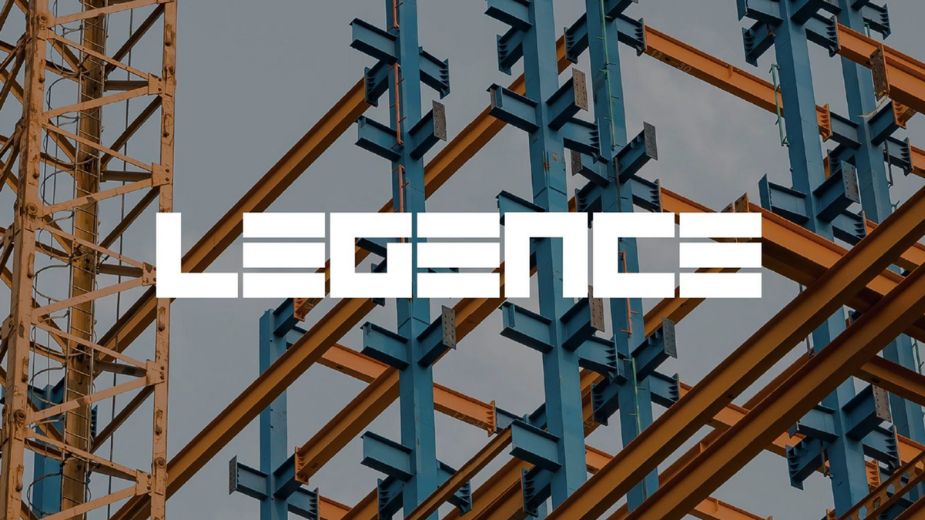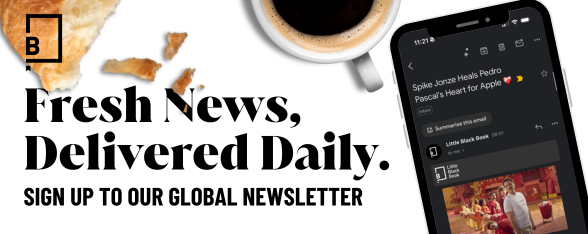
What Happens When Businesses Put Brand Strategy First?

When it comes to brand and strategy in the realm of private equity, it usually goes something like this: business gets acquired, suits come in and do some serious Marie Kondo-ing, expanding or rationalising until the business becomes more valuable, and then maybe, just maybe, bashing together a wee ad campaign or a new logo. Brand strategy comes at the tail end, if at all.
Investor Blackstone, though, is exploring a rather different thesis. What if brand is brought in earlier in the sequence of value creation? They’ve been testing that idea out with one of the businesses in their stable, Legence. In June the team were in Cannes, presenting on the main stage at the Palais, inspiring the industry with their work with Legence, where brand and creative strategy is creating value upstream, and to demonstrate the opportunities in B2B branding.
“The punchline is that Legence and Blackstone both believe in defining what the brand is really far upstream in the sequence of value creation, and then having the brand tethered to any intervention around the company,” says Jonny Bauer, global head of brand strategy and transformation who is sitting in the lobby of the Carlton Hotel in Cannes with Jeffrey Sprau, CEO of Blackstone-owned Legence.
Jonny Bauer and Jeffrey Sprau are two men from completely different worlds. Jonny is a strategist with a rich advertising pedigree, having spent 13 years at Droga5, where he became global chief strategy officer and before that he was group strategy director at BBH, and has worked on some of the world’s biggest brands. Jeffrey is an engineer by training and has built a reputation for leadership in large, industrial businesses. But through the journey they’ve been on, walking in each others’ worlds, the engineer and the ad guy have had their eyes opened.
Their journey began when Blackstone acquired a company called Therma in 2020. It was a mechanical contractor that dealt with energy and efficiency - think air con - in server buildings and data centres for large blue chip companies. So far, so sexy. But there was a glint of something exciting there…
… Potential.
Potential to expand from high tech buildings to normal offices and maybe even homes. Potential to bring together all sorts of different expertise and services to help clients to become more efficient and to decarbonise their estates, end to end. More than that, maybe they could help clients not only make their building less energy intensive, but healthier too. Blackstone started joining the dots and bringing together other related companies under its umbrella, so that Therma could create bundles and packages. It was a great vision - but the ‘how’ was somewhat less clear. What they were doing was pretty unique in that space.
“The challenge was, there’s not one company that we could look at and say, ‘we’ll copy them’,” says Jeff. “Nobody does it, they just stay in their swimlane. So we, over the last two and half years, have been plucking - and I’m biased - the best of all these swimlanes to bring them together.”
They had the best component parts they could find, but a disjointed spread of 4,000 people scattered across a number of cultures and structures that didn’t know how to work together let alone pull in the same direction. And they had a name that just didn’t work for them and pigeonholed them - ‘Therma’ was barely used other than to put on contracts when they acquired companies. “It was never the go to marketing name. It was actually the last thing we wanted to convey to clients,” says Jeff.
They needed not just a name but an idea. An idea that could help those employees feel like they were part of something bigger. An idea that would easily educate the market about Legence experience. An idea, says Jonny, that could be used as a filter for all future decisions, including hires and even more acquisitions.
That idea came after a good six months of strategic ‘therapising’ as Jonny says it took time to really understand exactly what all of the companies that had been acquired under the Therma banner did. And the insight came that, by installing new systems around heating and cooling buildings, with more efficient air con systems to smarter thermostats to renewables, can help businesses use less carbon and become more energy efficient. And those efficiency gains, reveals Jeff, are more than just a sliver of a percent - he says clients can see anything from 10% to 40% improvements…
“...So what you’ve got on your hands is a sustainability company,” explains Jonny. “Guess what? They’re worth more.”
Decarbonisation and being able to demonstrate sustainable practices are becoming more pressing for businesses, explains Jeff. “The market is changing. So clients used to say sustainability is important or decarbonisation is important, energy efficiency is important. Would they hire somebody to do a report to be nice? It costs a lot of money, and it would go on the proverbial electronic shelf. Well, now people are realising, ‘gee, climate change is something - it's real. The need to decarbonise is real.’ And we have to go from idea to action.”
But the vision went a step further than simply presenting a sustainability solution. Instead, what they did is completely reframe the notion of efficiency as something achieved by scrimping to something that could be consumed, a clever switch that allowed them to improve their offering, create bundled-up packages. “They’re in the efficiency business. They’re trying to encourage the consumption of efficiency,” says Jonny. “Everyone else tries to encourage the consumption of energy, and they were like, listen, we actually want to turn efficiency into a resource that we want people to consume more of. So the purpose of this company is maximising efficiency consumption in built environments.”
From a brand strategy perspective, Jonny says that what they really needed was to find a way to communicate this new category and its value, both internally and externally. “The challenge is twofold: it’s to make sure that there is now a name and a category for when all of these things come together. It means there is a valuation connected to what species of company now exists when all of these things come together, and of giving everyone clarity on why the company exists and what role each of them play in realising that,” he says. “But the beauty is they have an idea now that they’re making more true over time.”

And so Legence was born, with a name that conveys togetherness and purpose, an aesthetic that looks to the future. They’ve created a vocabulary to neatly, clearly and succinctly explain this vast and limitless new category they’ve created. They describe themselves as an ‘Energy Transition Accelerator’. Their website reads: “Our team radically improves the performance of the built environment by maximising efficiency consumption. We're fostering the future by championing building efficiency today.”
As well as creating a brand and a vision, Jonny and his team have been able to draw from their knowledge of the advertising world to pull in partners to bring that vision to life, building creative assets and platforms.
Jeff says the impact on the culture and way of making decisions has completely changed his view about what a brand really does for a business. “I was myopic. I knew Jonny, I knew his history, I thought, ‘ we’re going to get a great name and a cool brand’ but that was probably it. Little did I know that it could turn into our position, how we tell our story, how we recruit new employees, how we evaluate potential acquisitions, how we motivate all these 4000 people that are now part of the allegiance family… that I did not expect. And that's been the biggest eye-opener.”
Of course, as a private equity company, the ultimate metric of success is the extent to which the exercise has grown the company’s value. As Jonny and Jeff points out, it’s difficult to put hard numbers on the impact the brand strategy has had on Legence’s value until it’s sold. But, generally speaking, the difference of value between an HVAC company and a sustainability company can run to the hundreds of millions of dollars.
“We talk about value, values and valuation,” says Jonny. “That's the tripleheader, that the ideas that are underpinning this company are connected. So there’s the ‘value’ that it offers to the world, the ‘values’ around how it goes about doing it, and then the ‘valuation’ of being connected to the sustainability company which is a high multiple category then then a mechanical companies.”
Now, says Jonny, Legence are the ‘model Blackstone citizen’ and Jeffrey is actively sharing his Damascene conversion around the rest of the Blackstone group, helping leadership teams that are just starting on this journey.
“There are a lot of words to describe our culture, and collaboration and humility are the two big ones. We love getting help, and we're humbled that we get to tap into all these amazing resources,” says Jeff, modestly describing the company that pulls in $1.5 billion of revenue as ‘little ol’ Legence’. “I think the fact that we're willing to receive means we're coachable. I want to do better. And so now we get asked to tell our story a lot internally, which is great fun, because it's been an amazing journey.”
What has really struck Jonny about the whole process is that it’s proven just how rich with creative opportunity the B2B sector is. He notes that the talent that Legence is now able to recruit into its marketing teams is of a higher calibre, thanks to its purpose and positioning.
Building brands for a cool beer or a cutting edge video game is kind of obvious, and Jonny reflects that his team might be making a lot fewer Super Bowl ads than they did in a previous life, they’re hopefully more satisfied with the influence they’re able to wield across organisations. In a sense, it’s a route back to the days when the ad agency could sit at the top table next to the CEO.
Pulling back to look at the current state of the advertising landscape, what Jonny and his team have done is to reject a status quo that views brand strategy and creative thinking as a cost rather than an investment, a pretty piece of wrapping paper rather than a growth driver and organisational compass.
Furthermore, argues Jonny, investing in this deep strategic brand exploration upstream can result in more efficient marketing by the time you need to get your message out there. “Before we’ve even gotten to the media brief, the brand is now going to be telegraphing, at every single touch point. So customers understand not just the value, but the values that underpin the brand… And when there's that cohesion and connectedness, you actually do need to spend less money on media, right? Because you're singing from the same song sheet at every touchpoint,” says Jonny, reflecting on the economic pressures hitting marketers and agencies in the wider business ecosystem. “We've seen various cutbacks, but sometimes, if you can really push through with clarity around a defined offering, it's an amazing opportunity to steal market share.”
It’s been just over a year since the Legence brand launched into the market and for Jeffrey, all of this talk of the ins and outs of adland and the theoretical value of brand and strategy are perhaps less relevant than the material impact the process has had on his people. He beams when he reflects on the transformation from a sprawling patchwork of acquisitions to a purposeful, driven team ready to help businesses to save the planet.
“I didn’t know it would be so pervasive,” he reflects. “I also didn’t know we would be so emotionally invested in it.
“People are proud.”















